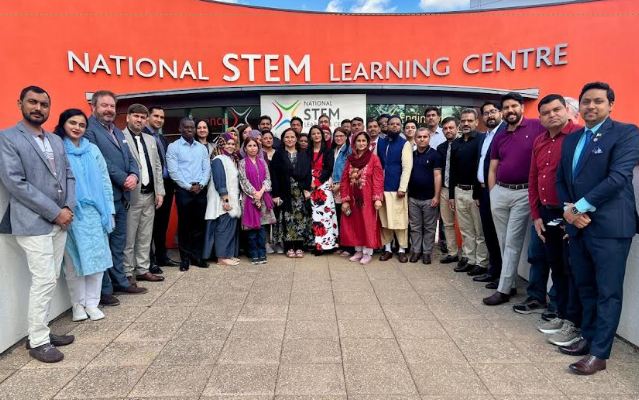ISLAMABAD, AUG 19 /DNA/ – A week long capacity building initiative of the National Academy of Higher Education (NAHE) Higher Education Commission’s (HEC), Pakistan for the STEM faculty from Universities across Pakistan in three batches concluded in UK on Friday August 08, 2025. Lecturers and Assistant Professors of as many as 62 universities took part in the program which was held in three batches during July to August.
National Academy of Higher Education (NAHE), in collaboration with the British Council Pakistan, King’s College London (KCL), and STEM Learning Center, York, UK, organized the training program under the umbrella of Pakistan-UK Education Gateway, a program aimed to enhance partnership between the higher education sectors of Pakistan and the UK. A consortium of UK universities were partners with KCL for this training program.
Focused on bridging the gap between STEM teaching standards in Pakistan and the UK through collaborations between Pakistani and UK higher education institutions, and fostering partnerships between STEM institutions in both countries, the training was executed in three cohorts in the months of July and August, 2025. Colleagues from HEC and the British Council were also part of the training. Some of the modules covered in the training program included Global STEM education and challenges, Project based learning and its relevance to STEM education, embedding work-integrated learning (WIL) and industry into STEM education, microteaching, and designing authentic and effective assessment strategies. The role of community of practice, artificial intelligence, internet of things, STEM ambassadors, and gender equity and inclusion was also discussed at length during the week-long training for all the cohorts.
Exposure visits to STEM Learning Center, University of York, University of Birmingham, King’s College London and historical sites in London were also part of the training for better understanding of the available facilities and cultural aspects as well. These participants are now required to cascade their learnings in their universities and play their part in improving the STEM education systems in the universities.

















